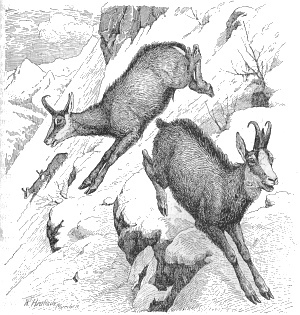From Lee Sallows, a grid that inventories its own contents:
![]()
From Lee Sallows, a grid that inventories its own contents:
![]()
hibernacle
n. a winter home
napiform
adj. shaped like a turnip
Interleave the letters in LUG and ONE and you get LOUNGE. Similarly:
SOT + PUS = SPOUTS
SHOE + COLD = SCHOOLED
CANES + HILT = CHAINLETS
CLIPS + ALOE = CALLIOPES
FETES + LENS = FLEETNESS
TINILY + RENAL = TRIENNIALLY
And three words can be merged to produce a fourth:
DOT + ERE + CAD = DECORATED
LET + ARE + CAD = LACERATED
LET + IRE + BAD = LIBERATED
MET + ORE + DAD = MODERATED
SAT + ERE + PAD = SEPARATED
SIR + ILL + MAY = SIMILARLY
TUT + ALE + BAD = TABULATED
scoteography
n. the art of writing in the dark
hystricine
adj. pertaining to porcupines

SOUTH DAKOTA shares no letters with its capital, PIERRE. It’s the only such state.
balatronic
adj. pertaining to buffoons

How lightly leaps the youthful chamois
From rock to rock and never misses!
I always get all cold and clamois
When near the edge of precipisses.
Confronted by some yawning chasm,
He bleats not for his sire or mamois
(That is, supposing that he has’m),
But yawns himself — the bold young lamois!
He is a thing of beauty always;
And when he dies, a gray old ramois,
Leaves us his horns to deck our hallways;
His skin cleans teaspoons, soiled or jamois.
I shouldn’t like to be a chamois,
However much I am his debtor.
I hate to run and jump; why, damois,
‘Most any job would suit me bebtor!
— Burges Johnson, Beastly Rhymes, 1906